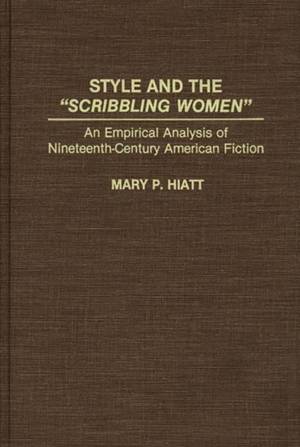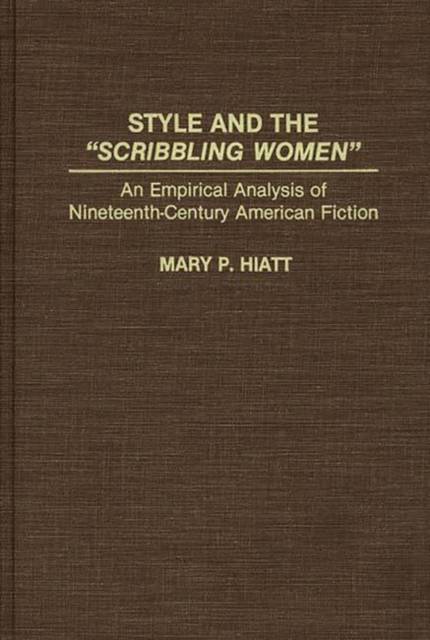
- Afhalen na 1 uur in een winkel met voorraad
- Gratis thuislevering in België vanaf € 30
- Ruim aanbod met 7 miljoen producten
- Afhalen na 1 uur in een winkel met voorraad
- Gratis thuislevering in België vanaf € 30
- Ruim aanbod met 7 miljoen producten
Style and the Scribbling Women
An Empirical Analysis of Nineteenth-Century American Fiction
Mary P HiattOmschrijving
Derogation of nineteenth-century women novelists was often the immediate response to their works. While modern feminist scholarship has repudiated this view of scribbling women, finding much of value in both substance and style in this body of literature, many critics and academics remain uninformed and continue to present an almost totally male canon as representative of meritorious writing of this period. The present work undertakes an empirical test of stereotypical notions about women's and men's nineteenth-century fiction, utilizing the computer to examine 80,000 words of running text from passages randomly chosen in twenty novels each by women and men. This material is analyzed for occurrences of various aspects of writing style, such as similes, parallel structures, rhetorical devices, and certain adverbs and adjectives, as well as for sentence length and complexity. That these nonimpressionistic findings show no overwhelming gender differences should finally put to rest traditional negative stereotypes about nineteenth-century women writers.
The author of an empirical analysis of twentieth-century fiction by men and women, Professor Hiatt uses these previous findings for a comparison of twentieth and nineteenth-century materials. The twentieth-century analysis showed greater linguistic and stylistic disparities between men's and women's writing. A comparison with the nineteenth-century materials indicates that diachronic shifts have occurred much more broadly and drastically in fiction by male authors. Carefully documented and written, this study will be valuable for researchers and students of women's studies, nineteenth-century American literature, linguistics, stylistics, and computer applications in the humanities.Specificaties
Betrokkenen
- Auteur(s):
- Uitgeverij:
Inhoud
- Aantal bladzijden:
- 176
- Taal:
- Engels
- Reeks:
- Reeksnummer:
- nr. 131
Eigenschappen
- Productcode (EAN):
- 9780313288197
- Verschijningsdatum:
- 30/01/1993
- Uitvoering:
- Hardcover
- Formaat:
- Genaaid
- Afmetingen:
- 140 mm x 216 mm
- Gewicht:
- 349 g

Alleen bij Standaard Boekhandel
Beoordelingen
We publiceren alleen reviews die voldoen aan de voorwaarden voor reviews. Bekijk onze voorwaarden voor reviews.











